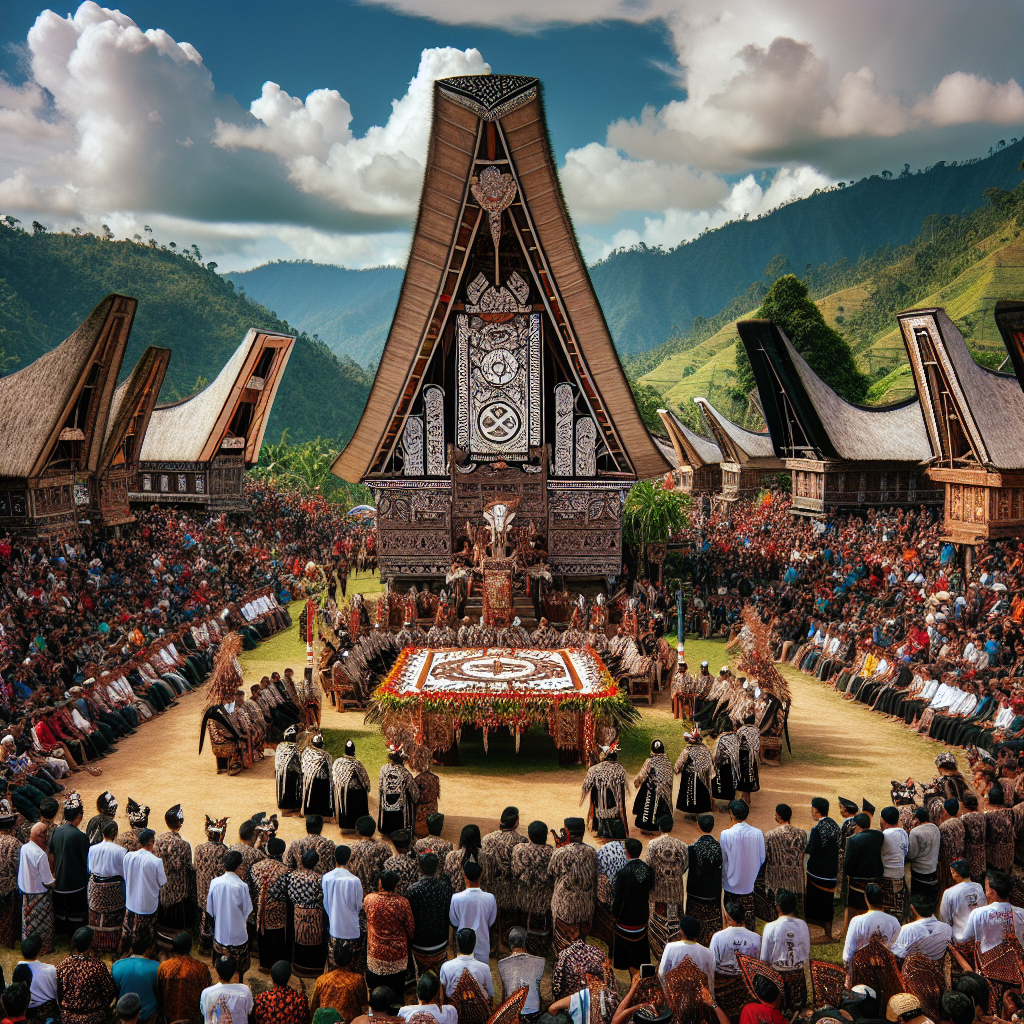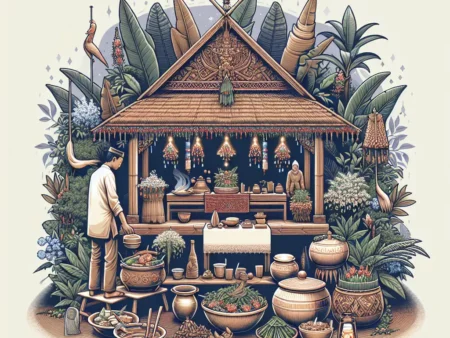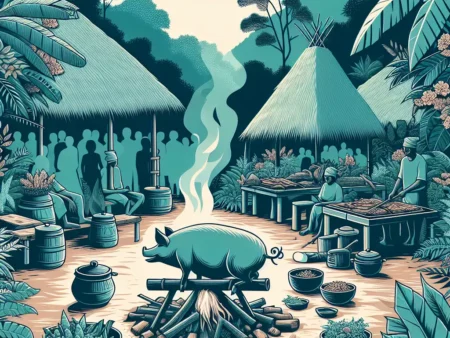Prosesi Upacara Adat Rambu Solo’ di Toraja: Upacara pemakaman tradisional yang kaya akan simbolisme dan ritual, dilakukan untuk menghormati dan mengantar roh orang yang meninggal ke alam baka.
Prosesi Upacara Adat Rambu Solo’ di Toraja
-
Table of Contents
Introduction

Indonesia is a country rich in cultural diversity, with each region having its own unique traditions and customs. One such tradition is the “Prosesi Upacara Adat Rambu Solo'” in Toraja, a regency in South Sulawesi. This article will delve into the significance, rituals, and cultural importance of this traditional ceremony, providing a comprehensive understanding of this fascinating cultural event.
The Significance of Rambu Solo’
Rambu Solo’ is a traditional funeral ceremony conducted by the Toraja people. It is considered one of the most important events in Torajan society, as it marks the final journey of the deceased to the afterlife. The ceremony is not only a way to honor the departed but also a means to ensure their smooth transition into the spiritual realm.
Origin and Meaning
The term “Rambu Solo'” translates to “great ceremony” in the Torajan language. It reflects the grandeur and significance of the event. The origins of this ceremony can be traced back to the animistic beliefs of the Toraja people, who believe in the existence of spirits and the afterlife.
According to Torajan beliefs, death is not seen as the end but rather as a continuation of life. The deceased are believed to join their ancestors in the spiritual realm and play an active role in the lives of their living relatives. Rambu Solo’ is a way to ensure a smooth transition for the departed and maintain a harmonious relationship between the living and the dead.
The Rituals of Rambu Solo’
Rambu Solo’ is a complex and elaborate ceremony that involves several rituals and stages. Each stage has its own significance and is meticulously followed to ensure the proper passage of the deceased into the afterlife.
Preparation Stage
The preparation stage begins as soon as a person passes away. The body is carefully washed, dressed in traditional attire, and placed in a temporary wooden coffin. The coffin is then kept in the family house, where relatives and friends pay their respects and offer condolences.
During this stage, the family starts preparing for the funeral by organizing various aspects of the ceremony, such as inviting guests, arranging food and accommodation, and collecting necessary offerings. The preparation stage can last for several weeks or even months, depending on the social status and wealth of the deceased.
Buffalo Sacrifice
One of the most significant rituals in Rambu Solo’ is the buffalo sacrifice. The Toraja people believe that buffalo are sacred animals and play a crucial role in accompanying the deceased to the afterlife. The number of buffalo sacrificed during the ceremony is a symbol of the deceased’s social status and wealth.
The buffalo sacrifice is a highly emotional and solemn event. The animals are adorned with traditional decorations and paraded in front of the crowd before being sacrificed. The meat from the sacrificed buffalo is distributed among the attendees as a symbol of sharing and unity.
Funeral Procession
The funeral procession is the culmination of the Rambu Solo’ ceremony. The deceased is carried in a wooden coffin, known as “erong,” by a group of pallbearers. The procession is accompanied by traditional music, prayers, and chants.
The funeral procession is a grand spectacle, with hundreds of people participating and paying their respects. The procession moves slowly towards the burial site, which is usually a cliffside grave or a carved stone tomb. The burial site is chosen based on the deceased’s social status and family traditions.
The Cultural Importance of Rambu Solo’
Rambu Solo’ holds immense cultural importance for the Toraja people. It is not just a funeral ceremony but a way to preserve their cultural heritage and maintain social cohesion within the community.
Preservation of Cultural Identity
The Toraja people have a strong sense of cultural identity, and Rambu Solo’ plays a vital role in preserving their traditions and customs. The ceremony is passed down from generation to generation, ensuring that the younger members of the community understand and appreciate their cultural heritage.
Community Bonding
Rambu Solo’ brings the entire community together, fostering a sense of unity and solidarity. The ceremony involves active participation from family members, relatives, and friends, who come together to support the grieving family and honor the deceased. It strengthens social bonds and reinforces the importance of community in Torajan society.
Tourism and Cultural Exchange
In recent years, Rambu Solo’ has gained attention from tourists and researchers interested in Indonesian culture. The ceremony has become a significant tourist attraction, providing an opportunity for cultural exchange and understanding. Visitors can witness the rituals, learn about Torajan traditions, and gain a deeper appreciation for the cultural diversity of Indonesia.
Conclusion
The Prosesi Upacara Adat Rambu Solo’ in Toraja is a captivating and culturally significant event. It reflects the deep-rooted beliefs and traditions of the Toraja people, showcasing their unique way of honoring the deceased and maintaining a connection with the spiritual realm. Rambu Solo’ not only preserves the cultural identity of the Toraja community but also serves as a means of community bonding and cultural exchange. It is a testament to the rich cultural heritage of Indonesia and the diversity that exists within the country.







